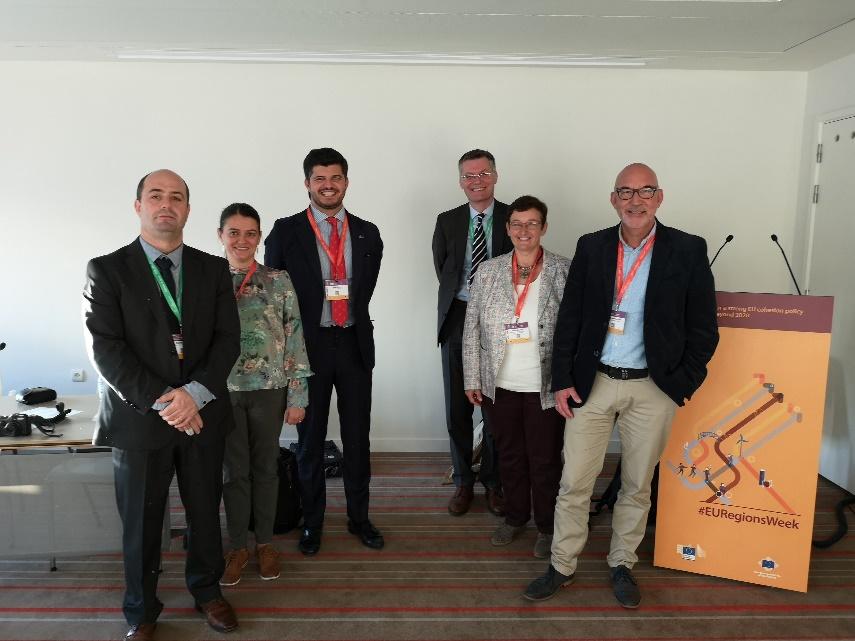From 8-11. October 2018 the European Week of Regions and Cities took place in Brussels. It’s an annual event during which officials form regions and cities’ administrations, as well as experts and academics, can exchange good practices and know-how in the field of regional and urban development.
The citizens of Europe become ever more mobile. As they work, study, live or do business in another Member State they come in to contact with the public administration of their host country.
Fortunately, digital technologies reduce the additional administrative burden of cross-border use of public services to near zero. The European Commission assists public administrations on all levels of government to come to grips with these challenges. At the same time in border regions, such challenges and opportunities for cross border administrative services are both especially numerous and pressing. The European Commission assists these regions in dealing with this situation, for example through its Connecting Europe Facility (CEF), and the work done on “interoperability solutions for public administrations, businesses and citizen (ISA²).
The workshop, springing from the joint efforts of DG CONNECT and DG REGIO, brought both perspectives together, presenting best practices and projects from all over Europe using eGovernment to alleviate daily problems of citizens in cross-border regions. Shedding light on many practicalities of digital cross-border public services, it reinforced the impression of cross-border regions as agile “living labs” of European cohesion and integration.

A common theme that emerged was the role of trust: Trust in the benefits of electronic cross-border administrative services is the basis for political sponsorship of such projects. Trust between the administrations both side of the border, is not only a precondition of joint digital services. Increased trust can also be the express goal or evident outcome of eGovernment projects, as exemplified by the Enterprise Europe Network (www.e-gover.net) setup in the cross-border region Bulgaria-Romania to foster long-term cooperation among public authorities.
At the same time, some 18.000 users of the “EuroCard” can trust in being able to use public facilities and services both sides of the border between Portugal and Spain. That trust translates into a kind of shared identity on which to build future ambitions projects.
Dutch, Belgian and German Farmers using eIDAS to login to government services across the border, trust in the functionally and availability of the services. The project mapping the Societal Vision for Once Only Principle for Citizens (SCOOP4C), showed where the Once Only Principle is put into practice, people will be able to trust not only that they will not have to give the same information twice to the administration, but also that this information is stored securely and shared only with their consent.

Take-away message
Cross-Border regions can act as pilots to explore the potential of digitalizing public services. Given the immediate benefits for citizens and business, there is strong return on investments of eGovernment actions in border regions. They create trust into digital solutions, contribute to better cooperation between administrations and help bringing regions and people together.
Links:
- https://futurium.ec.europa.eu/border-focal-point-network
- https://ec.europa.eu/futurium/en/egovernment/boosting-cross-border-regi…
- https://futurium.ec.europa.eu/eidas-observatory
- https://ec.europa.eu/isa2/eif_en
- https://www.e-gover.net
- https://scoop4c.eu/
- http://www.eurocidadechavesverin.eu/
- https://acc-demo-portal.minez.nl/demoportal/etoegang/
- Inicie sesión para publicar comentarios

